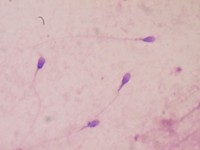Advertisement
Grab your lab coat. Let's get started
Welcome!
Welcome!
Create an account below to get 6 C&EN articles per month, receive newsletters and more - all free.
It seems this is your first time logging in online. Please enter the following information to continue.
As an ACS member you automatically get access to this site. All we need is few more details to create your reading experience.
Not you? Sign in with a different account.
Not you? Sign in with a different account.
ERROR 1
ERROR 1
ERROR 2
ERROR 2
ERROR 2
ERROR 2
ERROR 2
Password and Confirm password must match.
If you have an ACS member number, please enter it here so we can link this account to your membership. (optional)
ERROR 2
ACS values your privacy. By submitting your information, you are gaining access to C&EN and subscribing to our weekly newsletter. We use the information you provide to make your reading experience better, and we will never sell your data to third party members.
Biological Chemistry
Biomarker For Cancer Aggression
Metabolite in urine is linked to prostate cancer's progress
by Rachel Petkewich
February 11, 2009

A metabolite biomarker found in the urine of patients with prostate cancer may indicate how aggressively the disease is advancing, according to new research (Nature 2009, 457, 910). The findings also indicate that sarcosine, a methylated derivative of the amino acid glycine, may play a role in the cancer???s biological pathway.
Prostate cancer is the most frequently diagnosed cancer in men. Traditional diagnosis relies on a digital rectal exam, blood levels of prostate specific antigen (PSA), and tumor biopsies. None of these techniques can consistently distinguish aggressive from slow-growing cancer, which means physicians often end up over-treating patients, says the research team's leader, Arul M. Chinnaiyan at the University of Michigan Medical School. Sarcosine could point the way to more reliable and less invasive diagnostic methods as well as potential therapeutic agents, he adds.
Using chromatographic separations and mass spectrometry, Chinnaiyan and colleagues profiled 1,126 metabolites found in tissue, blood, and urine. They found that men with prostate cancer had high levels of sarcosine in their urine. The team also discovered that sarcosine may be involved in the development of prostate cancer. When they added the small molecule to cultures of benign prostate cells, the cells became invasive.
A biomarker linking tumor aggression and invasiveness is potentially significant for better understanding prostate cancer, says biological chemist Jeremy Nicholson at Imperial College London. But it is rare for just one biomarker to be absolutely diagnostic for any condition, he adds.
Assessing metabolites in urine might be an appropriate tool when applied with measurement of PSA levels and other approaches to monitor disease progression, write prostate cancer researchers Cory Abate-Shen and Michael M. Shen of the Columbia University College of Physicians & Surgeons in a related commentary.
C. Shad Thaxton, who studies prostate cancer at Northwestern University's Feinberg School of Medicine, says the new work is "intriguing and certainly has the potential of leading to novel diagnostics and treatments for prostate cancer," however, more work is needed to validate sarcosine as a marker for prostate cancer.




Join the conversation
Contact the reporter
Submit a Letter to the Editor for publication
Engage with us on Twitter